Introduction
Specialized restructuring consulting firms play a crucial role in guiding companies through financial challenges and towards stability and growth. These firms conduct in-depth analyses of a company's financial state and develop tailored strategies to enhance performance and resolve financial issues. By working closely with businesses, consultants identify areas for improvement, increase efficiency, reduce costs, and boost revenue.
The transformative impact of a well-executed strategy is evident in the case of a struggling hotel that saw a marked increase in sales within just the first week of implementing a restructuring consultant's strategy. This demonstrates the power of effective restructuring strategies to significantly improve a company's financial and operational health. The demand for restructuring consulting services is on the rise, with financial performance improvement engagements increasing by 56%.
Clients often report outcomes such as improved efficiency, increased revenue, and reduced costs, which are crucial metrics for success in today's market. Restructuring consultants serve as architects of financial rejuvenation, guiding businesses towards profitability and efficiency in the face of complex financial landscapes.
What is Restructure Consulting?
Specialized restructuring consulting firms play a vital role in steering companies through financial turbulence towards a path of stability and growth. By conducting a deep analysis of the current financial state, these advisors craft bespoke strategies aimed at enhancing performance and resolving financial conundrums. Collaboration is key, as consultants work intimately with businesses to pinpoint areas where efficiency can be increased, operational costs can be cut, and revenue can be augmented.
Take, for instance, the case of a major hotel struggling to boost its food and beverage sales despite an advantageous city center location. A restructuring consultant implemented a strategy that capitalized on the hotel's prime site to draw in more diners, which resulted in laudable reviews and a marked increase in sales within just the first week. This exemplifies the transformative impact that a well-executed strategy can have on a business's bottom line.
Moreover, the recent case of WeWork's operational and financial restructuring underscores the significance of such consulting services. Following a comprehensive renegotiation of its lease portfolio and a reduction in corporate debt, WeWork emerged from Chapter 11 proceedings, positioning itself for sustainable and profitable growth. This demonstrates how effective restructuring strategies can lead to profound improvements in a company's financial and operational health.
Firms specializing in restructuring consulting are helping businesses to not only learn from past challenges but also to build resilient foundations for the future. As reported, financial performance improvement engagements have surged by 56%, highlighting the growing demand for such services. Clients frequently report outcomes such as boosted efficiency, increased net revenue, and reduced costs, which are critical metrics for any business aiming to thrive in today's market.
In essence, restructuring consultants are the architects of financial rejuvenation, leveraging their expertise to guide businesses through complexity towards profitability and efficiency, ensuring they are well-equipped to face both current and future financial landscapes.
Key Phases in the Restructuring Process
Restructuring a business is a complex, multi-phase endeavor, central to the evolution and sustainability of organizations. It typically commences with a thorough analysis phase, where businesses delve into their current operations, financial performance, and market position. A detailed review of financial statements, such as income statements, balance sheets, and cash flow statements is conducted to establish a clear understanding of the financial health of the enterprise.
This stage is pivotal in identifying key areas that require change or improvement.
Following the initial analysis, strategy development becomes the focus, where innovative approaches are formulated in response to market competition, growth opportunities, customer preferences, and technological advancements. This is a critical juncture at which nearly 51% of businesses recognize the need to adapt, as per Bryan Solis's research, due to market forces and competitive pressures.
Implementation of these strategies is the next phase, where businesses must be agile and efficient. Operational efficiency and supply chain management are scrutinized to ensure they meet the new strategic objectives. During this stage, companies may take inspiration from successful case studies, such as the way Travel Charme Strandhotel leveraged technology to enhance guest experiences and streamline operations, resulting in increased sales and positive reviews.
The final phase involves rigorous monitoring to assess the effectiveness of the implemented strategies. It's a period to evaluate the business's agility and innovation capacity, ensuring that operations align with the restructured objectives. Continuous adaptation is key, as the landscape of business is ever-changing, with startups needing to revise their strategies every two to five years to stay afloat.
This strategic process is an interplay of budgeting, planning, and rigorous market analysis. By addressing these factors cohesively, a business can lay a solid foundation for long-term stability and growth, as evidenced by the handful of companies that have become unicorns, able to generate cash from operations without continuous venture capital support.
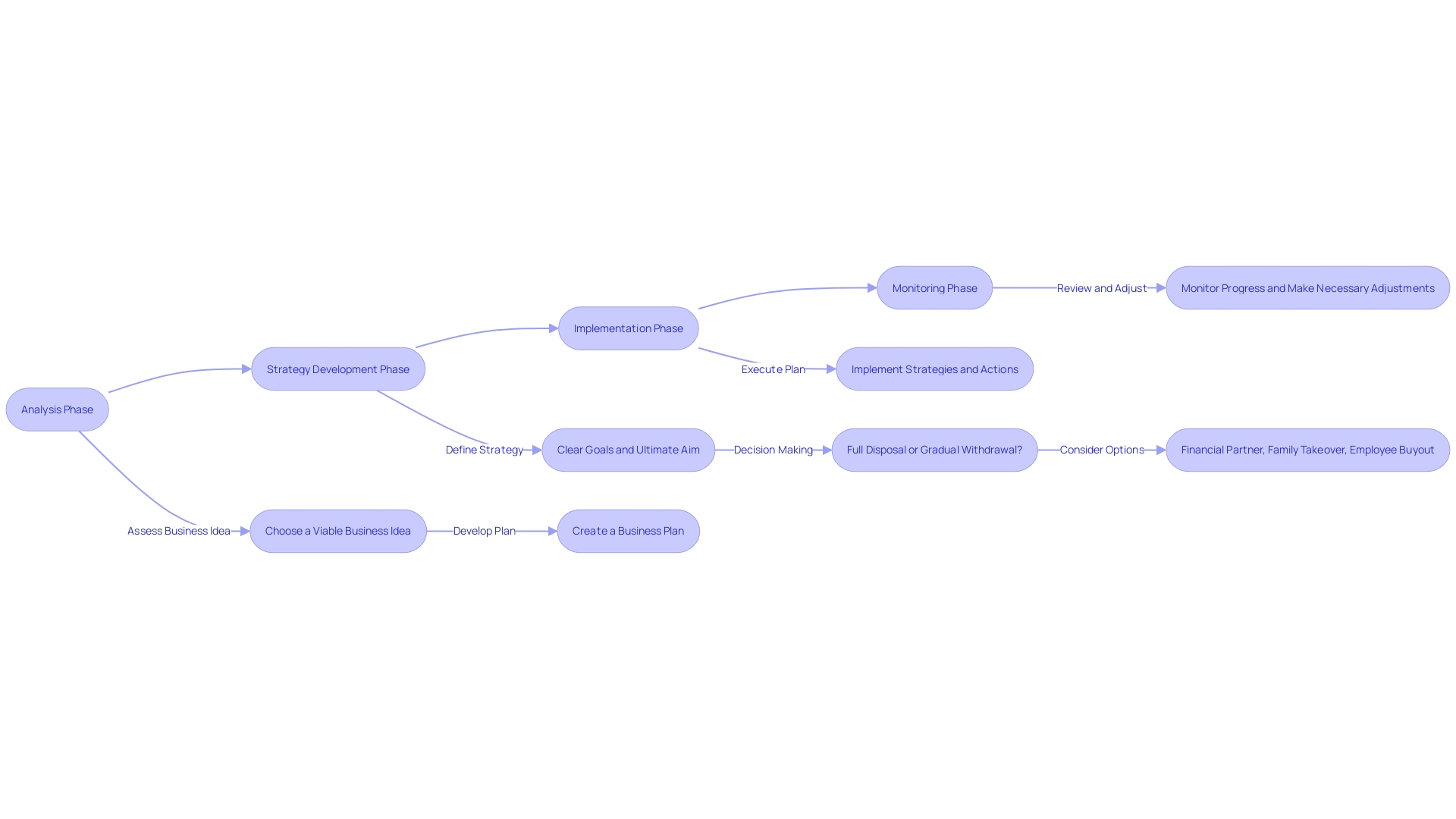
Analysis
The inception of a corporate restructuring strategy is rooted in a meticulous analysis phase. It's during this critical period that a restructuring consultant delves deep into the company's fiscal health. The approach is comprehensive: dissecting financial statements, dissecting cash flow, and pinpointing financial stress points.
The ultimate aim is to crystallize an understanding of the company's fiscal obstacles as well as the bright spots ripe for enhancement. Take the case of Nets, the Copenhagen-based digital payment solutions provider. They encountered the challenge of how to present complex technical data in a digestible manner.
Their solution was to innovate new, engaging methods to encourage user-driven information discovery. Similarly, an internal analysis is not just about scrutinizing the present; it's about shaping a strategy that's aligned with the company's authentic situation, propelling it towards its goals. This involves a thorough reevaluation of all expenses, as informed by recent industry advice, and prioritizing spending that aligns with strategic objectives.
This methodical approach to analysis serves as a robust decision-making aid, ensuring resources and competencies are harnessed effectively, from financial capacity to human talent. Recent statistics underscore the importance of such diligence, with the highest number of company insolvencies since 1993 recorded in 2023, highlighting the need for astute financial oversight. It's a truth universally acknowledged by CEOs: proactive transformation, before things go awry, pays off.
Initiating change while standing on par with, or ahead of, industry averages can significantly enhance total shareholder returns. This phase of analysis sets the stage for a transformation that's not just about change but about achieving a company's full potential through skillful and strategic execution.
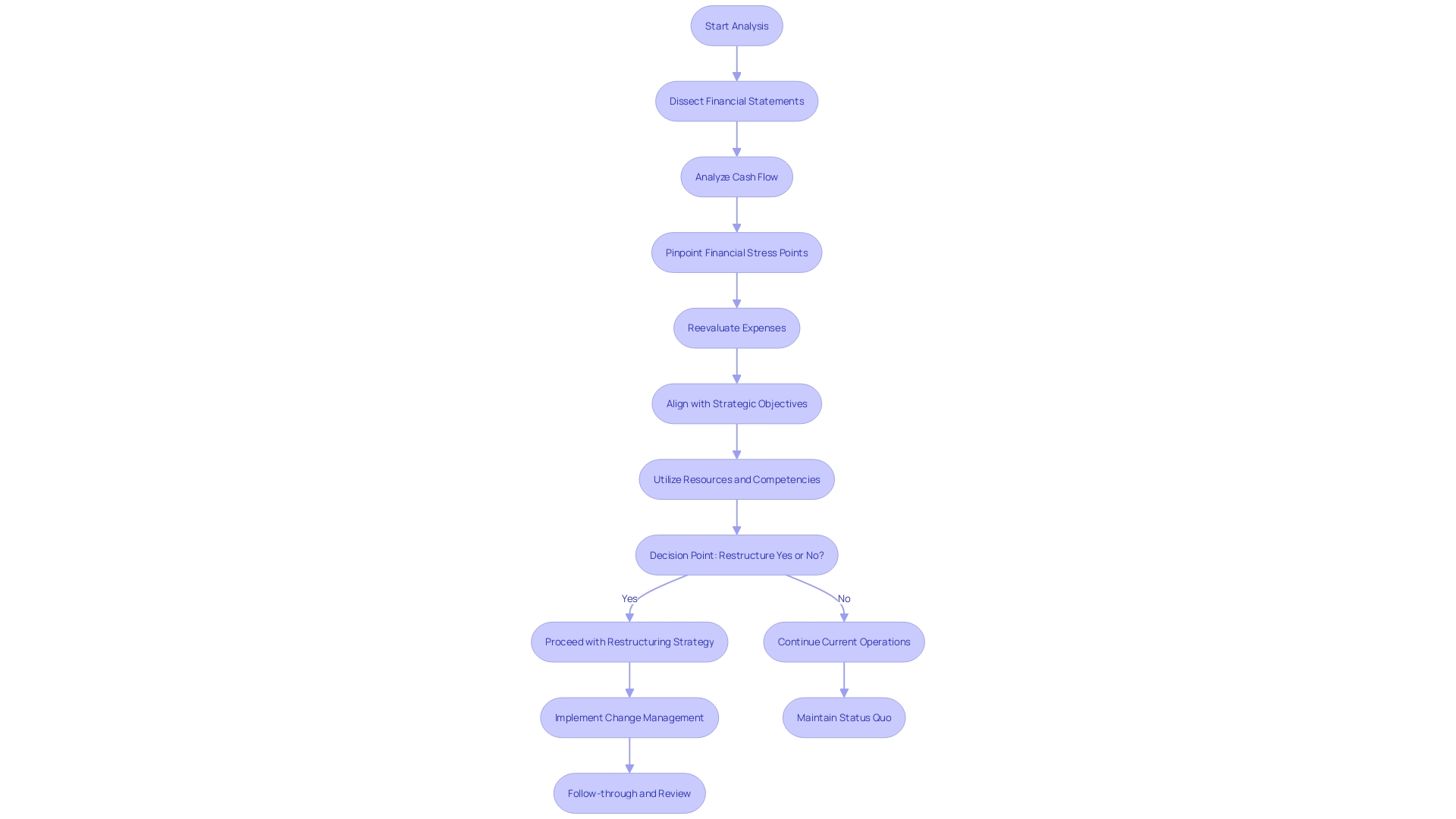
Strategy Development
When restructuring is on the agenda, consultants are pivotal in sculpting a new path for a company's financial and operational revival. They don't just provide generic solutions; they distill the complexity of a company's situation into a customized strategy. Take, for example, the case of Stora Enso, a leading paper manufacturer that faced the decline of the global paper industry.
They shifted from traditional paper to renewable materials, showcasing a dramatic pivot in strategy in response to industry changes. Similarly, a tailored strategy for restructuring could include a mix of cost containment, process optimization, debt reconfiguration, and avenues for revenue growth, all intricately woven to align with the company's specific ambitions and market demands.
The transformative power of such strategic overhauls can be seen in organizations like Nets, a digital payment solutions provider, which reimagined the presentation of technical data to engage users more effectively. This kind of operational innovation is just one facet of a deeper, broader strategy that may also encompass leadership restructuring and cultural shifts within the company. Echoing the sentiment from Joan Beets Company, restructuring can be an intricate process, influencing every layer of a company, from employee well-being to operational agility.
The necessity for clear communication is underscored by a McKinsey Global Survey, which found that during restructuring, 38% of employees reported distraction, and growth initiatives suffered. Yet, in successful reorganizations, 66% communicated their plans transparently. The message is clear: a successful strategy is not just about the financial and operational reshuffle—it's equally about how these changes are conveyed and implemented within the company.
By ensuring that employees are informed and involved, a company can navigate through the restructuring with more unity and less disruption.
Implementation
As restructuring consultants step in to shepherd businesses through transformation, their role transcends the mere development of strategies. They are partners in action, aligning closely with management teams to revamp operations and finances. The path to revitalization often involves enacting cost reductions, enhancing operational efficiencies, renegotiating vendor contracts, and ushering in innovative processes.
A case in point involves Travel Charme Strandhotel Basin, where the embrace of technology under the guidance of General Manager Greg Smlatic resulted in streamlined hotel operations, maximizing efficiency during peak tourist seasons. Similarly, AT&T's historical bureaucracy gave way to a dynamic, continuous transformation process, acknowledging the need for persistent evolution in today's fast-paced business landscape.
The recent report highlighting a 76% surge in sales post-restructuring underscores the tangible outcomes of adept consultancy. These firms support companies to not only achieve operational break-even but to foster environments where employment and asset growth flourish. Envision Healthcare's testament to high-quality patient care throughout its transformation process reflects the consultant's role in maintaining core business values while navigating change.
Fundamentally, the consultant's mandate is to ensure that the transition is not merely a temporary shift but a sustainable new normal, as advocated by Kurt Lewin's unfreeze-change-refreeze model. This is encapsulated in the philosophy of treating transformation as a continuum, where change is not a discrete event but an integral part of the business's DNA. In this journey, the consultant's expertise is invaluable, providing a blend of tailored advice, from financial modeling to policy creation, all aimed at propelling the business forward.
ERA Group's three-decade legacy of driving business health through strategic cost optimization further amplifies the transformative potential of such partnerships.
For the discerning CFO, the choice of a restructuring consultant may hinge on their track record of client success, the robustness of their strategies, and their ability to adapt to a company's unique needs. As the landscape evolves, so too must the consultants who navigate it, insuring against the complexities of change with a blend of experience, innovation, and unwavering commitment to their clients' growth and stability.
Monitoring
Effective monitoring is a pivotal element in the restructuring process, where consultants must apply a continuous transformation approach rather than a static 'unfreeze-change-refreeze' model. This dynamic methodology, contrasted with the traditional view of finite transformation efforts, is essential in today's fluid business landscape. It involves constant vigilance over the company's vital signs through key performance indicators and financial analyses to ensure that the restructuring is producing the anticipated outcomes.
An essential component is the internal analysis, which serves as a compass for steering operational changes and aligning them with the company's strategic objectives. By dissecting financial statements and tracking operational efficiency, consultants can identify areas that require fine-tuning and adapt the strategy to market demands. This approach is underscored by a report published in August 2023, which reveals that companies experiencing restructuring show a remarkable 76% surge in sales post-resolution, indicating the transformative power of adept management.
Furthermore, as companies strive to innovate and stay competitive, questions like 'What innovative approaches did we implement, and how effective were they?' become central to evaluating and refining the restructuring efforts. Ultimately, continuous monitoring empowers consultants to guide companies toward sustainable growth and operational excellence.
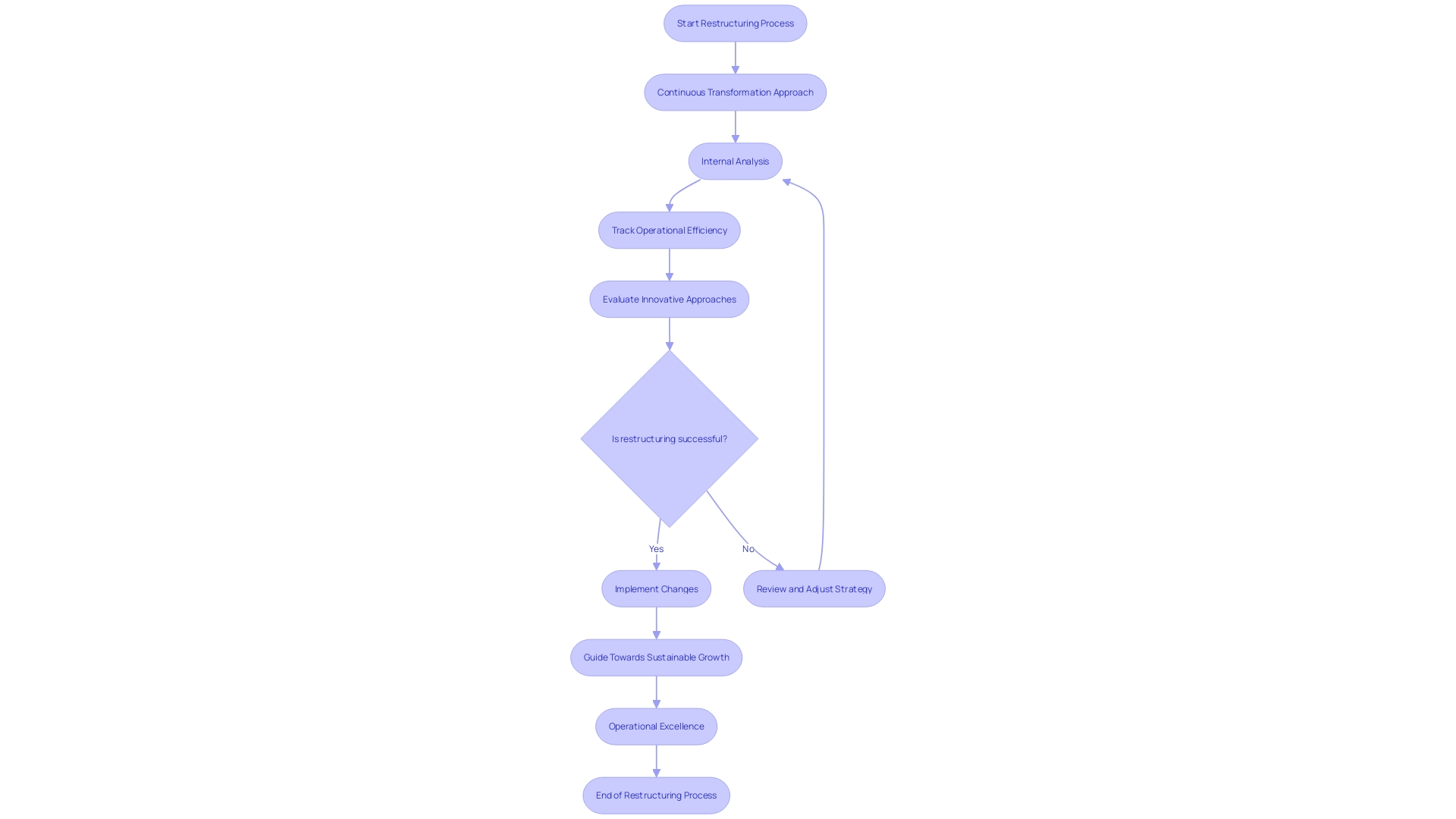
Benefits of Restructure Consulting
In the fast-paced world of business, restructuring consulting stands as a beacon for companies navigating financial turbulence. By tapping into this specialized guidance, businesses gain a multifaceted toolkit to weather and emerge stronger from economic storms. The profound benefits of such expertise are exemplified in the transformation of the Ford Foundation's digital engagement strategy.
Previously hampered by an outdated content management system, the Foundation implemented a new, efficient technical stack and improved its content, demonstrating operational efficiency and adaptability in action.
Similarly, Vodafone's move to a cloud architecture epitomizes the operational efficiency and job preservation that restructuring consulting can facilitate. What once required a 20-person team now operates effectively with a quarter of the manpower, underscoring the value of smart, strategic changes in preserving jobs while enhancing productivity.
Moreover, the experience of an international commodities company illustrates the power of consulting in identifying overlooked opportunities. A focus on distinguishing risk from uncertainty allowed the company to strategically capitalize on market conditions, showcasing the bespoke and objective expertise consultants provide.
In light of these case studies, the relevance of restructuring consulting is further reinforced by the evolving nature of the industry. The Boston Consulting Group's experiment with AI tools, for instance, highlights the ongoing quest for efficiency while also acknowledging the potential pitfalls that must be navigated with expert guidance.
For small businesses, the role of a consultant is akin to a North Star, guiding them through sales strategies, marketing campaigns, project management, and strategic planning. With comprehensive guidance, business leaders can expect to build their brand, streamline operations, and increase efficiency—benefits that are not just theoretical but also backed by industry-leading advice and the latest market research.
The sheer volume of tech companies facing financial hardship and layoffs underscores the pressing need for restructuring consulting. With 248,974 job cuts in the tech sector since the start of 2023, the role of consultants in steering companies toward financial recovery and job preservation has never been more critical. As businesses across sectors seek to balance the scales of innovation and stability, restructuring consulting remains an essential service to navigate the complexities of change and drive long-term sustainability.
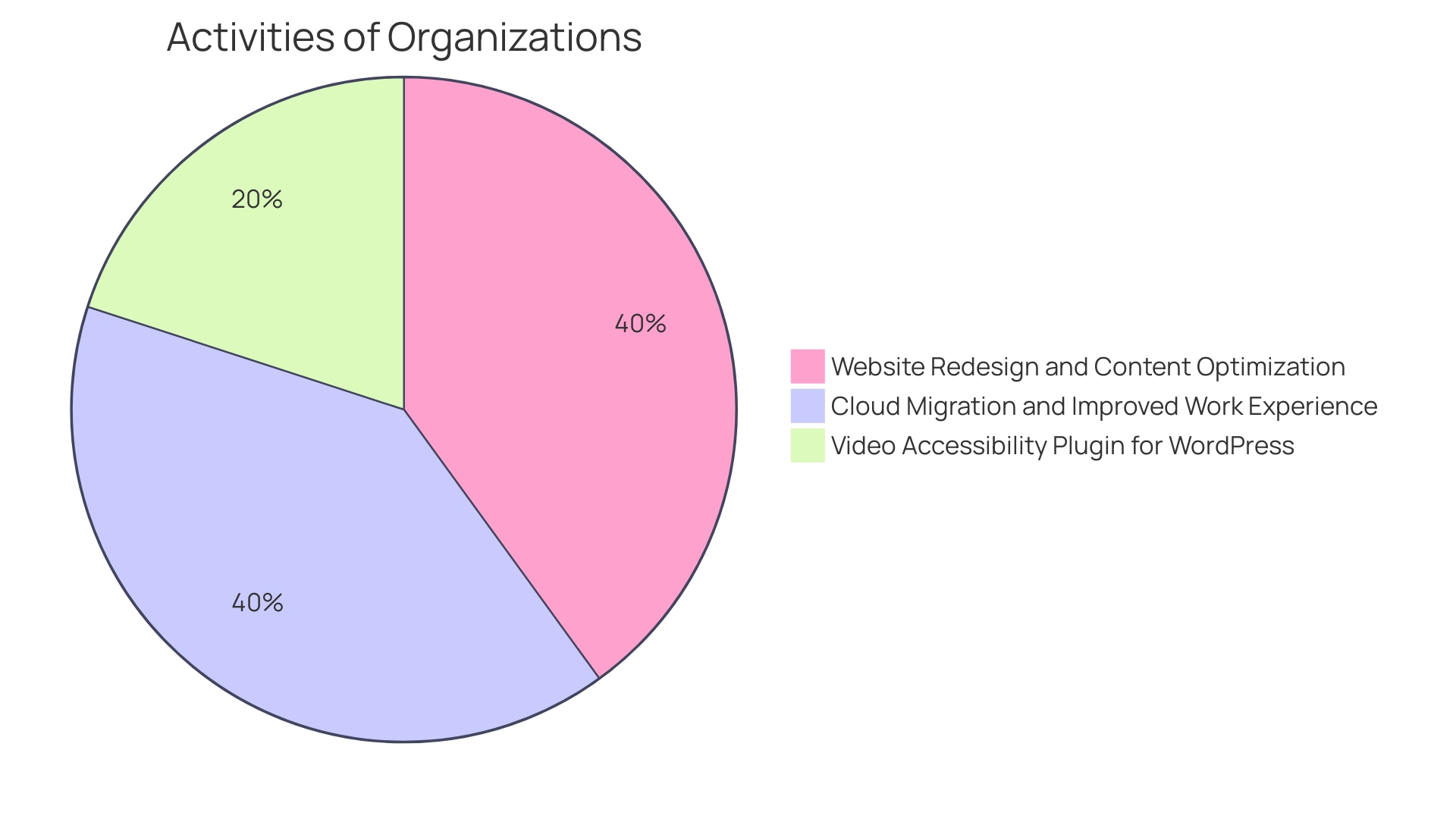
Financial Recovery
Restructuring consulting firms have proven essential in navigating financial challenges, offering strategies that lead to significant financial recovery for businesses in distress. By dissecting the complexities of a company's financial woes, these advisors can pinpoint the underlying issues, paving the way for a resurgence in financial health. Their approaches can be transformative, from reducing debilitating debt loads to enhancing cash flow and devising revenue-boosting strategies.
For instance, after a meticulous audit of a client's digital presence, a tailored technical stack—comprising Django, Tailwind, and HTMX—was chosen for its suitability, resulting in an uptick in user experience and sales. In the banking sector, TBC Bank's journey to digital transformation and agile methodologies reduced organizational complexity, facilitating international expansion and improved customer and employee experiences.
Amidst economic recovery, companies that reassess their long-term objectives and invest in agility and technological advancements can emerge as industry leaders. The U.S. economy, at a crucial turning point, suggests that businesses adopting forecasting tools and strategic investments will likely see a soft landing and sustained growth.
From the hospitality industry to healthcare, restructuring consultants have driven outcomes like increased net revenue and cost reductions, the most reported being financial performance improvement, with a 56% rise in engagements. This demonstrates the versatility and impact of restructuring consulting across different sectors. With the Federal Reserve Bank of New York emphasizing the maintenance of a safe and competitive banking system, the role of restructuring advisors becomes increasingly significant in ensuring the soundness of financial markets.
In summary, the expertise of top restructuring consulting firms and advisors is crucial for businesses seeking to overcome financial hurdles and achieve long-term success. These professionals offer a beacon of hope, guiding companies through the maze of financial instability towards a path of recovery and prosperity.
Operational Efficiency
In the modern business landscape, the imperative for operational efficiency is unparalleled. A prime example is the successful integration of technology at Travel Charme Strandhotel Bansin, which transformed hotel operations, leading to enhanced guest experiences. Similarly, John Dee's meticulous upgrade journey, from initial analysis to tailored system design, exemplifies a multi-staged approach to operational excellence.
Here are some strategic steps to elevate operational efficiency:
-
Task Management: Avoid the pitfalls of chaotic processes by implementing a robust task management system. Ensuring that team members are clear on their responsibilities can prevent critical tasks from being overlooked, safeguarding the integrity of projects and the organization.
-
Communication: Make ongoing investments in communication. Clear and efficient communication not only optimizes operations but also aligns teams and streamlines workflows.
-
Resource Optimization: Allocate resources smartly by deploying tools and personnel effectively. This can significantly boost productivity and ensure that critical tasks are prioritized, aligning with strategic business goals.
-
Tech Consolidation: Embrace technology consolidation to simplify and streamline your tech stack. This can result in cost savings and reduced complexity, enabling a sharper focus on core business functions.
-
Customer-Centric Approach: Understand your key customers and their needs. This lean principle advocates for eliminating non-value-added activities, focusing on those that serve the customer's needs directly, and ensuring demand-driven work.
As cited in recent news, operational efficiency is not just a concept but a necessity, especially in the face of global challenges like supply chain disruptions and economic fluctuations. Adopting these methods can not only improve efficiency but also position a business for sustained success.
Adaptation to Change
As the business landscape evolves with unprecedented speed, it's clear that flexibility and agility are more than just buzzwords—they're essential survival skills. Restructuring consulting has emerged as a critical service for organizations looking to navigate the complexities of market fluctuations, technological advancements, and evolving industry trends. By providing expert insights and strategic guidance, restructuring consultants empower businesses to revamp their strategies, tap into new markets, and foster innovation to maintain a competitive edge.
Consider the transformation of Travel Charme Strandhotel Bansin, a family-friendly hotel in Germany, which leveraged technology to streamline operations and enhance guest experiences. By adopting a dynamic and collaborative approach, the hotel successfully adjusted to the demands of peak vacation times, ensuring optimum service delivery despite the pressures of high guest turnover.
Moreover, the case of Vodafone's cloud migration illustrates the power of adaptability. The move to cloud architecture not only improved customer accessibility to services but also optimized the work experiences of engineers. Such strategic changes reduced the manpower needed for product launches from a team of 20 working around the clock to just five people.
These examples underscore the transformational impact of restructuring consulting. As Mathew Lehnig aptly puts it, 'During business reorganization, constant change is inevitable... we must remain agile and adaptable to ensure the desired outcomes.' Such adaptability is now a strategic imperative as companies are ready to leap across industry lines in search of new opportunities, as identified by seven in ten business leaders in a recent survey.
Businesses are now recognizing that every company is essentially a software company, and the integration of digital transformation is no longer a luxury but a necessity. Post-pandemic, the allocation of investments in emerging technologies like AI, AR/VR, and IoT is expected to rise significantly, highlighting the importance of digital transformation across industries. This is reinforced by the digital economy statistics that show the vital role of infrastructure, e-commerce, and priced digital services in supporting the digital economy.
In summary, restructuring consulting firms play a pivotal role in helping businesses adapt and thrive in this fast-paced digital age. By fostering organizational agility, these advisors enable companies to preemptively address potential impediments and seamlessly pivot their strategies in response to the ever-changing business environment.

Long-Term Sustainability
Top restructuring consulting firms offer pivotal expertise to businesses seeking to navigate through financial challenges and market changes. Such firms draw upon a wealth of strategic insights to enhance financial performance and secure long-term sustainability. For example, Stora Enso, a leading paper manufacturer, illustrated the power of strategic transformation by shifting from traditional paper production to becoming a trailblazer in renewable materials, in response to the decline in global newsprint demand.
This bold move was underpinned by a strategic decision to harness cash flow from existing operations to fund growth in emerging markets, leading to innovations in sustainable building materials and eco-friendly product alternatives.
Similarly, addressing environmental, social, and governance (ESG) issues, such as water conservation, has become integral to business strategy. Levi Strauss is a case in point, setting ambitious 2025 water use targets tailored to local water stress levels, demonstrating a forward-thinking approach to resource management and sustainability. This kind of strategic planning is becoming increasingly essential, as a PwC CEO Survey indicates that without significant business model changes, nearly half of CEOs doubt their companies' viability over the next decade, with climate change posing a pressing challenge.
In light of these developments, the demand for expert guidance in sustainability consulting is surging. Firms must navigate complex regulatory landscapes and integrate sustainable financial policies, as evidenced by China's stringent environmental regulations bolstering the need for specialized consulting services. Yet, despite rising pollution levels and regulatory pressures, the slow adoption of sustainability methods due to resource constraints remains a hurdle for many organizations.
Therefore, consulting firms play a crucial role in equipping businesses with strategies to overcome these challenges and achieve sustainable success.
Incorporating insights from top consultants and industry pioneers, businesses can restructure for resilience, adapt to shifting market demands, and align with sustainable practices. This approach not only ensures compliance with current standards but sets a course for continued prosperity in an evolving global economy.
Objective Expertise
When faced with financial challenges, restructuring consultants offer a blend of unbiased expertise and industry-specific insights that can be pivotal for organizations navigating through tumultuous times. For instance, healthcare organizations dealing with the fiscal impacts of the COVID-19 pandemic, inflation, and staffing shortages turned to consulting firms for strategies to enhance financial performance amidst diminishing revenues and rising expenses. A case in point is the KLAS 2020 Financial Improvement Consulting report which spotlighted how consultancies provided critical guidance to healthcare entities during the pandemic's early stages, demonstrating their role in driving tangible outcomes under economic duress.
Moreover, consider Haleon's journey, a consumer health company born from GSK's consumer healthcare division separation. Haleon sought expert advice to manage a complex technology transition during the UK's most significant demerger in three decades. The strategic navigation of this intricate process was essential to minimize system downtime, which could have led to substantial financial losses, showcasing the consultants' role in executing high-stakes transformations.
In the hospitality sector, consultants like John Young have employed a multi-disciplinary strategy to revamp restaurants. By conducting market research and understanding customer needs, consultants have been instrumental in nearly doubling the size and profits of hospitality businesses, as evidenced by significant increases in sales post-restructuring. This highlights the consultant's impact on operational efficiency and revenue growth.
In periods of economic recovery, companies that invest wisely, divest strategically to enhance agility, and leverage technology to improve efficiency can set themselves apart. Consulting firms offer valuable perspectives on these critical decisions, helping businesses prepare for sustained recovery by reevaluating expenditures and prioritizing investments in line with long-term goals. The importance of such strategic consulting is underscored by current economic indicators suggesting a potential turning point for the U.S. economy.
In the context of small business consulting, a comprehensive approach that includes sales strategies, marketing campaigns, and financial management can be transformative. Consultants provide not only expertise but also the latest market research and customized coaching tailored to the unique challenges of a small business. They play a crucial role in building brands and streamlining core operations, leading to improved business performance.
The insights drawn from case studies, news articles, expert quotes, and statistical data all reinforce the value that restructuring consultants bring to businesses across various industries. They not only help companies adapt to immediate financial pressures but also guide them toward achieving long-term profitability and growth.
Job Preservation
In the face of financial challenges, businesses often prioritize job retention to safeguard their workforce and operational continuity. Restructure consulting becomes instrumental in devising strategies that not only aim to prevent layoffs but also focus on optimizing the workforce. This involves a collaborative effort with company management to reorganize job roles, enhance the skill sets of employees through upskilling and reskilling, and adapt to market demands efficiently.
For instance, San Diego County's strategic approach to overcoming public sector hiring hurdles led to a significant milestone of 20,000 employees. Similarly, Alina Fisch of Contessa Capital Advisors emphasizes the empowerment derived from managing cash flow, which is the first step in financial recovery. A detailed assessment of obligatory expenses such as housing and transportation forms the foundation of this process.
Moreover, businesses are encouraged to set attainable goals over short periods, explore new markets or outsourcing options, and invest in technology to streamline operations and reduce labor costs. Incentivizing employees is also a key factor that contributes to workforce preservation during economic downturns. As seen in the food and beverage industry, which remains robust even in recessions, the emphasis on core necessities can lead to sustained business success.
The industry's resilience is highlighted by the impressive $6.22 trillion in total sales from 1992 to 2019.
In summary, restructuring consultants play a pivotal role in helping companies navigate financial distress. Through strategic planning and a focus on job preservation, they enable businesses to maintain a competitive edge and foster a committed workforce.
Differences Between Turnaround and Restructuring Consulting
Turnaround and restructuring consulting each serve their own distinct purpose when it comes to rejuvenating a company. Turnaround consulting is the financial equivalent of emergency first responders, swooping in to stabilize a company that is financially hemorrhaging and helping it return to profitability. This often involves quick-fix solutions to stop the bleeding and short-term strategies to get the company back on its feet.
On the flip side, restructuring consulting is akin to a comprehensive wellness plan, focusing not just on the company's immediate financial woes but also on restructuring the business model to ensure sustainable health and performance in the long run. Whether a company is looking for a quick rebound or a fundamental change in its financial strategy, these consulting services can provide the necessary expertise and guidance to navigate through challenging times.
Take, for example, a major hotel that couldn't boost its food and beverage sales despite a prime location. The restructuring process began with understanding the market and then devising a strategy that leveraged its location to attract more diners. The outcome was a significant increase in sales and rave reviews within the first week of implementation.
This success story exemplifies how a well-orchestrated restructuring strategy can turn a struggling operation into a thriving enterprise.
In periods of economic recovery, companies that are seen as well-managed and profitable stand out. Executives are advised to consider long-term goals and the strategic actions required to achieve them, such as investments, divestments for agility, and the adoption of technology for efficiency. These strategies are instrumental in defining a company's success in the decades following economic disruptions.
Furthermore, with the proliferation of 'unicorns' in the business landscape, the focus has shifted from mere market value to sustainable operations that generate cash without constant venture capital support.
In conclusion, the decision to engage turnaround or restructuring consultants depends on the company's immediate needs and long-term aspirations. Both types of consultants play a crucial role in guiding businesses towards recovery and prosperity, with their expertise in financial modeling, industry trends, and operational strategies ensuring that companies not only survive but also thrive in today's competitive market.
Skills and Qualifications Required for Restructure Consultants
Effective restructuring consultants are not just advisors; they are the strategic architects of financial resilience and growth. By leveraging a robust mix of analytical prowess, deep-seated knowledge in financial management, and a keen eye for business strategy, they steer companies toward fiscal health. With the ability to dissect financial statements and assess market conditions, they form the backbone of informed decision-making, offering forecasts and investment advice that shape a company's future.
This expertise is exemplified by the transformation seen at Travel Charme Strandhotel Bansin, where a focus on targeted improvements led to a marked increase in sales and customer satisfaction. Similarly, in the high-stakes environment of a major hotel's restaurant, a strategic revamp harnessed the location's potential to attract diners, resulting in significant revenue boosts. These success stories underscore the critical role of seasoned industry experience in understanding unique market dynamics and consumer behaviors.
Amidst today's high-inflation, high-interest rate economy, the demand for such skilled leaders is paramount, as they navigate the complexities with agility and insight. The recent surge in financial performance improvement engagements, with clients reporting over half of the outcomes as efficiency gains, attests to this. Financial analysts are at the heart of this landscape, their rigorous data analysis and forecasting capabilities forming the cornerstone of sound strategic planning, guiding businesses through the intricacies of finance with precision and foresight.
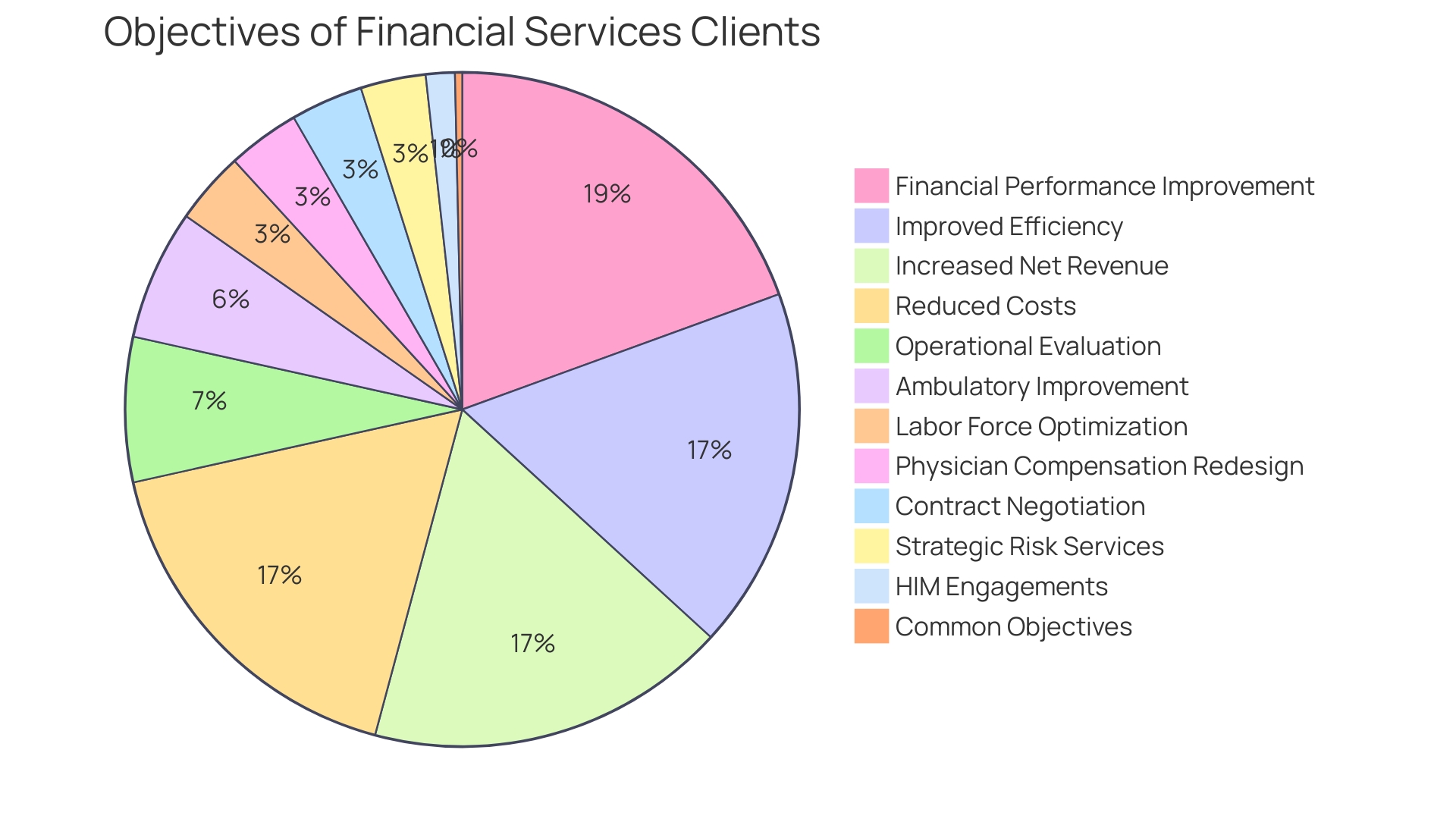
Conclusion
Restructuring consulting firms play a crucial role in guiding businesses through financial challenges towards stability and growth. They conduct in-depth analyses, develop tailored strategies, and drive tangible outcomes such as increased sales and improved financial and operational health. With the demand for these services on the rise, restructuring consultants serve as architects of financial rejuvenation, guiding businesses towards profitability and efficiency in complex financial landscapes.
The restructuring process involves thorough analysis, strategy development, implementation, and monitoring. Consultants delve deep into a company's fiscal health, identifying obstacles and areas for enhancement. They develop customized strategies aligned with market demands and communicate transparently to ensure successful implementation.
Restructuring consultants go beyond strategy development; they partner with businesses to revamp operations and finances. Through cost reductions, enhanced efficiencies, and innovative processes, they drive tangible outcomes such as increased sales and job preservation. Their expertise ensures the transition is sustainable and propels the business forward.
Effective monitoring is pivotal, allowing consultants to assess outcomes and adapt strategies to market demands. Continuous transformation and rigorous analysis empower businesses towards sustainable growth and operational excellence.
Restructuring consulting offers profound benefits, including financial recovery, operational efficiency, adaptation to change, long-term sustainability, objective expertise, job preservation, and differentiation between turnaround and restructuring. These benefits are supported by case studies and industry insights, highlighting the value of restructuring consultants in navigating financial challenges.
In conclusion, restructuring consulting firms provide essential guidance to businesses facing financial turbulence. With their confident and action-oriented approach, they offer practical advice and solutions to CFOs seeking stability, growth, and long-term success.




